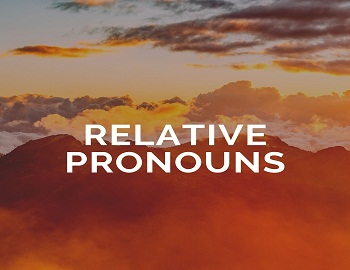Table of Contents
Use of Shall and Will:
Use of Shall and Will in Assertive Sentences:
(1) Shall in the First person and Will in the Second and Third persons denote simple future, as, I shall see him tomorrow. He will be here tomorrow.
(2) Shall in the second and third persons denotes:
a command; as, You shall not steal.
a threat; as, You shall be fined, if you do not work satisfactorily.
a promise; as, He shall get a reward.
a compulsion; as, Children shall respect their parents.
a determination; as, you shall help the poor with whatever little you have.
a certainty; as, If it does not rain in time, there shall be famine.
(3) Will in the first person denotes:
a determination; as, Come what may, I will go.
a promise; as I will lend you some money.
a threat; as, I will teach you a lesson, if you misbehave.
intention; as, I will go to Srinagar during the summer vacation.
Note I- Will in the second and third persons sometimes expresses habit; as, he will wander in the jungle for hours together.
Note II- Sometimes will is used with any person to express obstinacy and persistence; as, The monkey will never sit still. The knife will not cut.
Note III- Learn the following lines by heart-
Shall in the first person simply foretells,
In Will a threat or a person dwells;
Shall in the second and the thirds does threat
Will then simply foretells the future fact.
Use of Shall and Will in Interrogative Sentences:
(1) Shall in the first person denotes
- a simple future; as, Shall I go out for a walk?
- an enquiry; as, Shall I purchase a book for you? (Do you wish me to purchase a book for you?)
(2) Shall in the second person denotes a simple future; as, Shall you do my work tomorrow?
(3) Shall in the third person expresses a request instructions, the command or the desire of the person spoken to; as,
- Shall he pay his fees tomorrow? (Do you wish or command him to pay fees tomorrow?)
- Shall he go next week? (Do you wish him to go next week?)
(4) Will is never used in the first person to ask a question.
The sentence “Will I go there?” is absurd. Will means intention and it is absurd to ask another person about one’s own intention.
(5) Will in the second person denotes the wish or intention of the person spoken to; as,
Will you come tomorrow to witness the match? (Do you wish or intend to come tomorrow to witness the match)
(6) Shall or will is used in the second person according to the answer expected; as,
- Will you lend me your pen? ( Answer: I shall)
- Shall you do this work? (Answer: I shall)
(7) ‘Will you‘ is the most common form for asking a favour as, Will you be good enough to lend me some money?
(8) Will in the third person denotes simple futurity; as, Will she sings today?
(9) Learn the rule: In Interrogative Sentences Shall I? Shall you and Will he denote simple futurity and Shall I? Will you and Shall he? denote the wish of the person addressed.
Some Important Distinctions:
- Tomorrow will be a holiday. (Tomorrow is to be a holiday. This may be said by a schoolboy)
- Tomorrow shall be a holiday. (The speaker orders that tomorrow is to be holiday. This may be said by the Headmaster)
- You shall not steal. (Command)
- You will not steal. (Prediction)
- I shall be drowned and nobody will save me. (I am likely to be drowned and there is no one to save me)
- I will be drowned and nobody shall save me. (I am determined to drown and do not want the help of anybody to save me)
- Shall you attend the meeting? (Are you sure that you will attend the meeting?)
- Will you attend the meeting? (Do you wish to attend the meeting?)
- Shall he be fined? (Do you wish that he shall be fined? It is an enquiry as to the wish of the person addressed)
- Will he be fined? (Is he going to be fined? It is an enquiry as to a future event)
- May I do this? (I desire to do this, but I seek your permission)
- Shall I do this? (Do you desire me to do this?)
Some Common Mistakes with Shall and Will:
(1) I shall do or die. (Say, will. It shows Determination.)
(2) We shall help him, come what may. (Say, will. It shows Willingness.)
(3) I shall not harm anybody in future. (Say, will. It shows Promise.)
(4) You will get a reward for your good work. (Say, shall. It shows Promise.)
(5) Shall you or will I do it? (Say will you or shall I.)
(6) Shall you kindly lend me some money? (Say, Will you.)
(7) Shall you come tomorrow? Yes, I will. (Say, Will you.)









Comments (No)